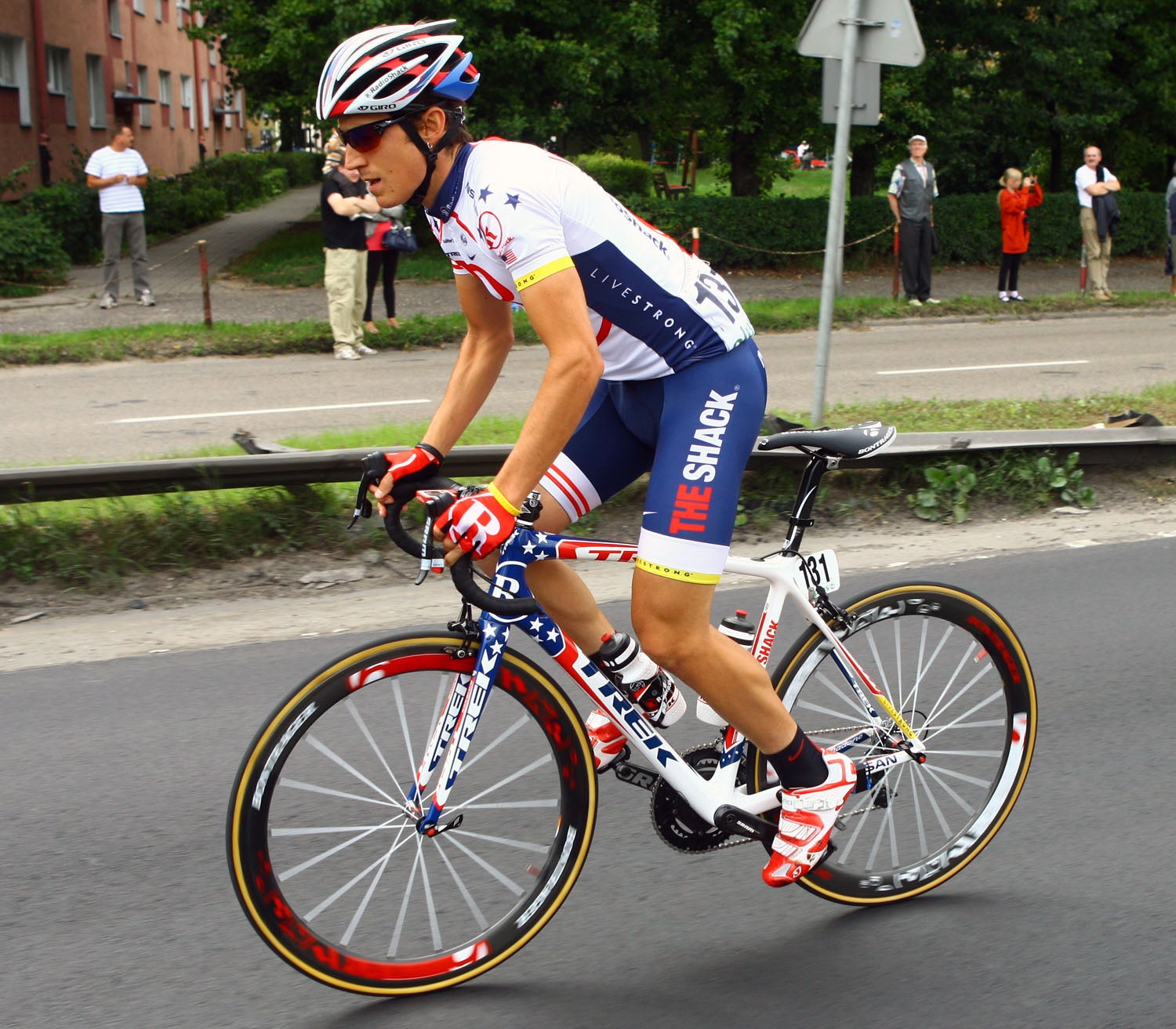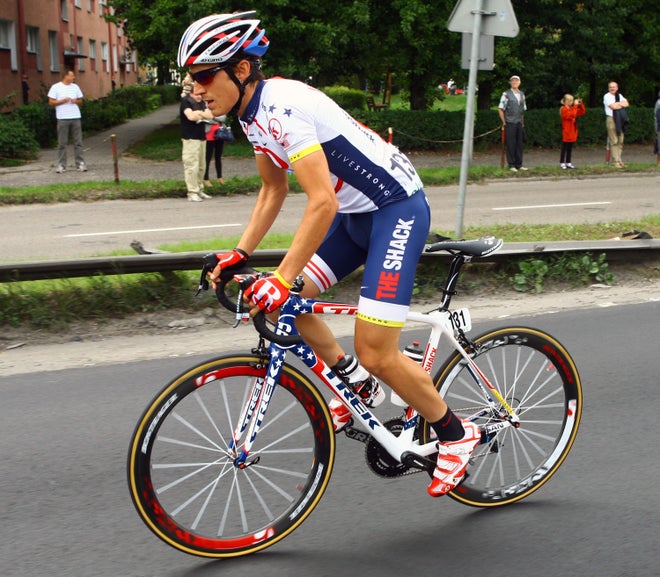Three grand-tour rookies among slim American field at Vuelta

U.S. champ Matthew Busche in Poland

Three grand-tour rookies are part of a slim North American contingent for this year’s Vuelta a España that will likely include only four starting U.S. riders.
The Colorado tour is proving a popular draw for U.S. and Canadian riders and most chose to race on home roads rather than to make a start in the season’s final grand tour, which clicks into gear Saturday in Benidorm with a team time trial.
The exception are three grand-tour rookies all keen on making their mark. Taylor Phinney (BMC), Matt Busche (RadioShack) and Andrew Talansky (Garmin-Cervélo) will each toe the line. Tyler Farrar Farrar (Garmin-Cervélo) is also expected to race.
After a rough start to the season with minor knee problems, Phinney broke through for his first professional win last week at the Eneco Tour with victory in the opening time trial. He defended the leader’s jersey for three days and rode to fourth overall, just missing the podium against a quality field.
Phinney will be an important motor in the opening team time trial and then take aim at the Vuelta’s lone individual time trial in stage 10 in Salamanca. As they’ve done all season, BMC management will not be putting too much pressure on their young charge. Arriving to Madrid would be a bonus, but coming out of the Vuelta strong for the world time trial championships in Copenhagen is the top goal.
Andrew Talansky posted some exceptional results early in the season, with fourth up the Mont Faron summit in his first European pro stage race in February’s Tour Méditerranéen. He posted top-10s in all of his European TT rides (seventh at Paris-Nice, fifth at Criterium International, fifth at the Tour of the Basque Country and sixth at the Tour de Romandie).
Talansky returned to competition with the Tour of Poland, which he used to ride into fitness for the Vuelta. Garmin team boss Jonathan Vaughters is a big believer in Talansky’s GC potential, but no one is putting too much pressure on him to perform on what’s a very challenging Vuelta course.
Like Phinney, Talansky will be riding the Vuelta to build for the future, but will be taking a stab at another strong ride in the Salamanca time trial as well as looking to make it to Madrid.
In his second season with RadioShack, Busche, 26, has posted solid results on both sides of the Atlantic racing in 2011. His double-podium at the U.S. national championships in May — with victory in the road race and third in the time trial — proved he can compete against the best domestically.
Encouraging results in Europe, with 32nd in the Critérium du Dauphiné and 20th at the Tour of Poland, give RadioShack brass hope that Busche will develop into a GC contender in the coming years, especially in shorter, one-week stage races.
Busche will test his luck in the climbing stages and help the team riders in the GC, with eyes on making it to Madrid and perhaps riding into a breakaway.
Farrar is not yet confirmed for the Vuelta. If he starts, it will be to chase stage victories in the sprints and prepare for the world championships. Whether that means he fights all the way to Madrid remains to be seen.
Farrar has had an emotionally distraught season, with the highs of winning a breakthrough Tour de France stage on the Fourth of July tempered with the tragic death of his best friend and training partner, Wouter Weylandt, during the Giro d’Italia in May.
Farrar has a solid track record in the Vuelta, winning his first grand tour stage in the 2009 edition and winning two more stages last year, including the prestigious final stage into Madrid.